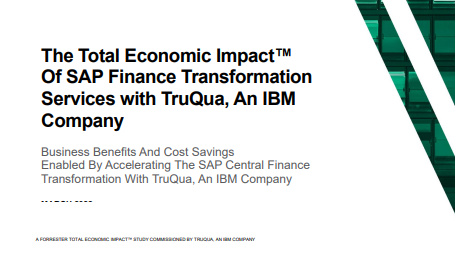Replaced by an AI: Would you retrain for a new job?
The government is testing a scheme to support anyone who loses their job to an AI — will businesses and their employees embrace it?


According to the ONS (Office for National Statistics) around 1.5 million jobs in England alone could be at risk from automation. Deloitte finds that over the next two decades, up to 35% of all jobs could be at high risk of being replaced by automated systems.
If the rise of automation has the potential to impact millions of jobs, will workers want to adapt and learn new skills if their jobs are at risk? A two-year Commission on Workers and Technology is currently assessing the impact automation and artificial intelligence (AI) could have on the UK's workforce. Yvette Cooper MP, who is chair of the Commission, wrote in The Guardian: "Trades unions and communities can't just stand by and hope for the best. If we want technological change to benefit everyone rather than widening inequality, then we need to start preparing now."
One practical solution the government has outlined is the National Retraining Scheme. Designed to help workers retrain if they are replaced by automation or other emerging technologies such as AI, the 2018 Autumn budget pledged 100 million to the scheme.
The Scheme is being designed in association with the Confederation of British Industry (CBI) and the Trades Union Congress (TUC). The question is, will this new initiative deliver the retraining needed? And in the face of what could be a torrent of new technologies that have the potential to displace millions of workers, will everyone embrace reskilling?
Speaking to IT Pro, Peter Quinlan, vice president of business collaboration at Tata Communications said: "The government scheme is a step in the right direction, but UK businesses and individuals cannot solely rely on the government to upskill workers in the wake of job losses. As businesses continue to adopt AI, existing roles will evolve and new roles that don't exist today will be created. As AI is increasingly applied, work will become progressively less task-based and more strategic, requiring teams to embrace curiosity and innovative thinking."
As Geraint Johnes, professor of economics at Lancaster University Management School and an expert on labour markets and the emerging issues relating to artificial intelligence's effects on employment explains to IT Pro: "In many cases, jobs are complex bundles of very varied tasks, and morphing of the nature of the job is gradual. In other cases, where jobs are more focused on a single task, technology can wipe out human advantage at a stroke."
"The introduction of driverless vehicles will not just change drivers' jobs it will destroy them," he continues. "In cases like these, retraining can help displaced workers find new jobs. The evidence on the success of retraining schemes is that they provide some, but not complete, protection they reduce the incidence of unemployment, but they do not eliminate it. And displaced workers often fail to get new jobs that are as rewarding as their old jobs were, even after retraining."
Get the ITPro daily newsletter
Sign up today and you will receive a free copy of our Future Focus 2025 report - the leading guidance on AI, cybersecurity and other IT challenges as per 700+ senior executives
It's too simplistic, therefore, to state that retraining will be the single solution to job losses as a consequence of businesses using AI and automation. Some workers will certainly embrace retraining, but others won't be able to gain the new skills they need. Automation may create new jobs, but whether these fit into the career and life aspirations of workers is another matter entirely.
New skills
For businesses, greater automation is inevitable, if they are to remain competitive in their marketplaces. Research from risk management firm Willis Towers Watson revealed a third of UK professionals expect their jobs to be overtaken by automated systems, but fewer than 20% of their businesses are preparing for these changes.
Indeed, the Federation of Small Businesses (FSB) National Chairman Mike Cherry tells IT Pro: "The impact of AI will only grow in various sectors and jobs, and small businesses have a myriad of views on it. FSB is concerned that the more ordinary' firms are not well positioned to take advantage of the unpredictable opportunities that could be afforded by AI."
"FSB is aware that small businesses will need to adapt to AI, in the medium to longer term, and calls on government to work with small businesses to enable them to integrate this technology into their future growth plans," he adds.
Not all companies seem to be unprepared for the massive changes automation could bring to their businesses, though. Amazon recently announced its Upskilling 2025 initiative. The scheme will include a Machine Learning University that helps Amazon workers with a background in technology and coding gain skills in Machine Learning. The Associate2Tech program, meanwhile, provides fulfilment centre associates the opportunity to move into technical roles regardless of their previous IT experience within Amazon's operations network, plus other highly focused initiatives.
Of course, Amazon has vast resources available to offer many detailed retaining opportunities. For the small business community, which the vast majority of UK businesses belong to, will the National Retraining Scheme be enough to allay the fears their staff may have regarding the security of their jobs?
Business owners need to start designing training and reskilling programmes today. The human resources they have are for many enterprises their most precious asset and one they have developed over several years. Simply replacing this asset for an AI, for instance, is wasting the knowledge and experience contained within their companies. Reskilling is, of course, an option for workers who may be displaced by new technologies, but this can't be forced on them.
An AI future
According to research by Microsoft, businesses and organisations already on the AI journey are outperforming other organisations by 5% on factors like productivity, performance, and business outcomes.
Business owners are clearly focused on developing their enterprises and see technologies like AI as a means to achieve their goals. Instead of replacing staff with an AI, or recruiting to support their AI initiatives, upskilling their existing workforce can minimise disruption.
"Today, many businesses are failing to properly invest in providing AI training for staff," says Katie Gibbs, head of AI at BJSS, an IT and business consultancy. "Instead of upskilling their workforce, employers are increasingly looking to fill AI-specific roles externally. Not only does this result in disengagement of existing staff who have contributed to growth over the years, but it also means that organisations are paying over the odds for AI specialists."
The PwC "Workforce of the future: The competing forces shaping 2030" report clearly states: "Many commentators focus on technology and the role that automation is predicted to have on jobs and the workplace. We believe the real story is far more complicated. This is less about technological innovation and more about the manner in which humans decide to use that technology."
Lancaster University's Johnes concludes: "Automation makes neither utopia nor apocalypse. Technology is not good or bad in itself it all depends how people respond to the possibilities that are offered. Certainly, the relationship that people have with work will change over the coming years, but how this happens will depend on how decision-makers in business and government respond to the challenges as they arise."
AI, automation and the drive to make Industry 4.0 a reality is pushing employers to deconstruct employee roles in the wake of automation. Jonny Gifford, senior research advisor at the CIPD, the professional body for HR and people development, explain that people must always be front and centre in the technological development discussion.
"In the debate on AI and automation, it is important to note that by no means should all jobs affected be considered casualties," he says. "The current discourse and much of the research on AI and automation puts a heavy emphasis on the jobs that stand to be eliminated, but this perspective seriously overlooks the opportunities and benefits. Our research shows that the rise of automation is not as black and white as is often portrayed and certainly the doomsday narrative is not justified. Automation has and will make some jobs redundant, but it seems more likely to allow people to take on more meaningful and higher-skilled work."
There is a clear balance to be struck between the needs of employees and how their employers want to develop their businesses. AI and automation are in their early stages of development. What is certain is job losses will occur. However, for many workers their jobs won't end but transform.
David Howell is a freelance writer, journalist, broadcaster and content creator helping enterprises communicate.
Focussing on business and technology, he has a particular interest in how enterprises are using technology to connect with their customers using AI, VR and mobile innovation.
His work over the past 30 years has appeared in the national press and a diverse range of business and technology publications. You can follow David on LinkedIn.
-
 Should AI PCs be part of your next hardware refresh?
Should AI PCs be part of your next hardware refresh?AI PCs are fast becoming a business staple and a surefire way to future-proof your business
By Bobby Hellard Published
-
 Westcon-Comstor and Vectra AI launch brace of new channel initiatives
Westcon-Comstor and Vectra AI launch brace of new channel initiativesNews Westcon-Comstor and Vectra AI have announced the launch of two new channel growth initiatives focused on the managed security service provider (MSSP) space and AWS Marketplace.
By Daniel Todd Published
-
 Optimise CX and accelerate business growth through your voice network
Optimise CX and accelerate business growth through your voice networkwhitepaper Protecting the human experience in a digital world
By ITPro Published
-
 Enterprises are doubling down on IT optimization strategies – and it’s delivering huge financial returns
Enterprises are doubling down on IT optimization strategies – and it’s delivering huge financial returnsNews Organizations that have cracked IT cost optimization and innovation reap the rewards both financially and in terms of time to market.
By Emma Woollacott Published
-
 IDC InfoBrief: Sustainability doesn’t need to be all stick and no carrot
IDC InfoBrief: Sustainability doesn’t need to be all stick and no carrotwhitepaper CIOs are facing two conflicting strategic imperatives
By ITPro Published
-
 How to empower employees to accelerate emissions reduction
How to empower employees to accelerate emissions reductionin depth With ICT accounting for as much as 3% of global carbon emissions, the same as aviation, the industry needs to increase emissions reduction
By Fleur Doidge Published
-
 The Forrester Wave™: API management solutions
The Forrester Wave™: API management solutionsWhitepaper The 15 providers that matter the most and how they stack up
By ITPro Published
-
 Former TSB CIO fined £81,000 for botched IT migration
Former TSB CIO fined £81,000 for botched IT migrationNews It’s the first penalty imposed on an individual involved in the infamous migration project
By Ross Kelly Published
-
 Schneider Electric unveils its first e-commerce partner program
Schneider Electric unveils its first e-commerce partner programNews Partners will be assigned a dedicated Schneider expert to aid strategy development
By Daniel Todd Published
-
 The Total Economic Impact™ of SAP finance transformation services with TruQua
The Total Economic Impact™ of SAP finance transformation services with TruQuaWhitepaper Business benefits and cost savings enabled by accelerating the SAP central finance transformation
By ITPro Published